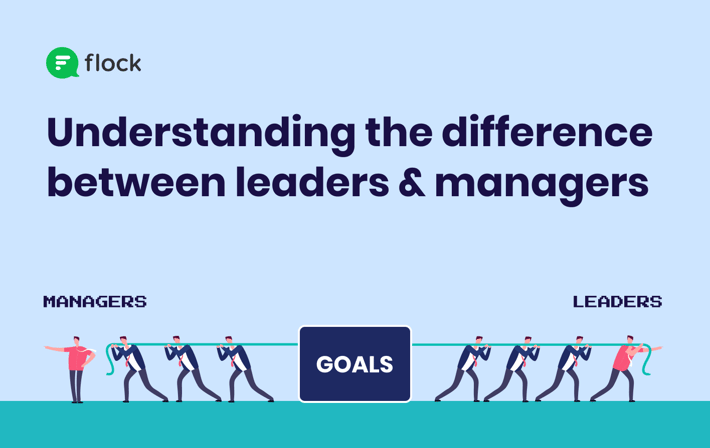Image by Hunters Race on Unsplash
Effective leadership is critical for any company to succeed, and influential leaders play the most crucial role in developing their team's performance, strategy, and culture. In today’s complex and fast-paced business environment, leaders must possess many qualities and skills to accomplish their daily duties. And that doesn’t always involve technical skills, expertise, or intelligence.
The most successful leaders have a high level of emotional intelligence, which is the ability to identify, comprehend, and manage their emotions and those of others. Emotional intelligence is critical to leadership because it assists leaders in establishing healthy communication, building strong relationships, managing workplace conflicts, and inspiring their subordinates to accomplish their objectives.
This article will explore the importance of emotional intelligence in effective leadership and how it can massively affect the success or failure of an organization.
Understanding Emotional Intelligence
The first introduction of the emotional intelligence concept came from psychology professors Peter Salovey of Yale and John D. Mayer of UNH in 1990. Since then, it has become widely recognized as an essential quality for effective leadership. Emotional intelligence consists of four crucial components: self-awareness, self-regulation, social awareness, and relationship management.
Self-awareness
Self-awareness is the component that describes a person’s ability to recognize and comprehend their own emotions, strengths, weaknesses, and values. Self-awareness means recognizing your emotional triggers, understanding where you excel and where you do not, comprehending your motivations, and identifying patterns in your behavior.
Self-regulation
Self-regulation refers to an individual’s ability to manage their own behaviors, emotions, and thoughts in a way that is constructive and aligned with their goals. You may confuse this component for self-control; however, they are entirely different.
Self-control entails that you inhibit and control your impulses, while self-regulation is a broader term that involves steering your behavior to accomplish specific objectives.
Social awareness
Social awareness describes a person's ability to identify and understand the emotions and needs of others and to empathize with their perspectives.
Relationship management
Relationship management describes building solid relationships, communicating effectively, and managing conflicts.
The Importance of Emotional Intelligence in Leadership
In leadership roles, emotional intelligence is pivotal in building solid relationships, fostering teamwork, and promoting a positive work culture. Leaders with high emotional intelligence and leadership training from providers of leadership development programs like the Center for Creative Leadership are adept at inspiring their teams and resolving conflict.
Emotional intelligence helps leaders enhance effective communication, build strong relationships, conflict management, decision making, and motivate team members.
Effective communication
Effective communication is an essential quality for any leader. Leaders must communicate their vision, goals, and expectations clearly and effectively to their team members. They must also be capable of listening actively and empathizing with their team members’ perspectives.
Leaders with high emotional intelligence are better prepared to communicate effectively with their team members, as they can adjust their communication style to suit the needs of their audience. They can also read the emotions of their team members and adapt their communication accordingly, which can result in more productive and positive interactions. To further enhance your leadership communication skills, consider using a professional resume template that highlights your achievements and communication abilities effectively, showcasing your strengths to potential employers.
Building strong relationships
Building solid relationships with team members is essential for effective leadership. Leaders with high emotional intelligence can build trust and rapport with their team members by empathizing with their emotions and needs.
They can also create a supportive and positive work environment where team members feel appreciated and valued. A supportive and positive work environment can increase job satisfaction, motivation, and engagement, improving performance and productivity.
Conflict management
Conflict is inevitable in any workplace, and influential leaders must manage it constructively and positively.
Leaders with high emotional intelligence can stay calm and composed during tense situations and empathize with their team members, which can help to de-escalate conflict. They can also use their emotional intelligence to find solutions that address the needs of all parties involved, leading to stronger relationships and improved teamwork.
Decision making
Effective decision-making is crucial for successful leadership. Leaders with high emotional intelligence often use their ability to understand their own emotions to make more informed and rational decisions.
They can also use their ability to empathize with the emotions of their team members to take into account their perspectives and needs when making decisions. That can lead to better decisions that are more aligned with the goals and values of the organization.
Motivating team members
Inspiring and motivating their team members is almost second nature to a leader with high emotional intelligence. They can use their ability to recognize and understand the emotions of their team members to create a positive and supportive work environment.
They can also use their ability to communicate effectively and build strong relationships to inspire their team members to go above and beyond in their work. That can lead to a boost in performance, productivity, and job satisfaction.
Image by krakenimages on Unsplash
How To Develop Emotional Intelligence
Developing emotional intelligence is a lifelong journey that requires consistent effort and practice. Here are some practical steps you can take to improve your emotional intelligence.
Self-awareness
The first step towards boosting your emotional intelligence is to become more self-aware. Becoming self-aware means recognizing and understanding your own emotions and how they affect your behavior.
Take the time to reflect on your emotions and identify patterns in your behavior. You can keep a journal or use a mindfulness app to help you become more aware of your thoughts and feelings.
Empathy
Empathy describes a person's ability to understand and share the feelings of others. To develop empathy, it is vital to actively listen to others and try to see things from their perspective.
You can practice empathy by imagining yourself in someone else's shoes and visualizing how they might feel. Being more empathetic can help you better understand others and build stronger relationships.
Emotional regulation
Emotional regulation is the ability to control your own emotions and respond to situations calmly and rationally. Learning techniques for managing stress and anxiety, such as mindfulness meditation, deep breathing, or exercise, is essential to develop emotional regulation.
You can also practice delaying your response to a situation or email until you have had time to process your emotions and respond more thoughtfully.
Social skills
Social skills describe an individual's ability to communicate effectively with others and build strong relationships. Practicing active listening, assertiveness, and conflict resolution is essential to develop social skills.
You can also practice networking and building relationships with people from diverse backgrounds to help you develop a broader perspective and greater empathy for others.
Continuous learning
Developing your emotional intelligence will be a lifelong process that requires continuous learning and growth. You can continue developing your emotional intelligence by reading articles and books on the topic, attending workshops and training sessions, and seeking feedback from others.
Master Emotional Intelligence and Lead
Emotional intelligence is an essential aspect of becoming an effective leader. Self-aware, empathetic, emotionally regulated, and socially skilled leaders are better prepared to build strong relationships with their team and colleagues, manage conflict, and make sound decisions.




